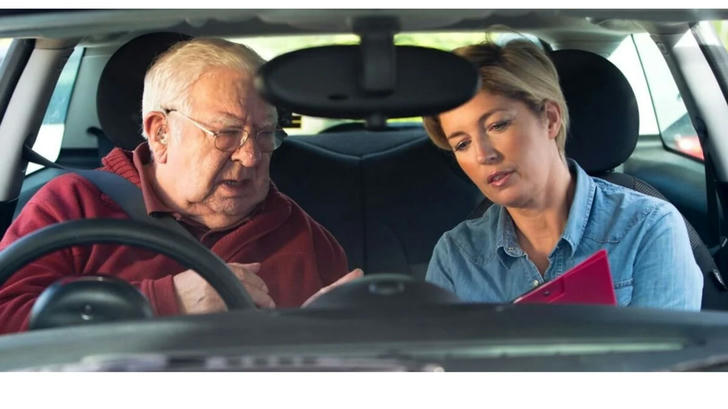Major Changes to Senior Auto Insurance Rules in the U.S. Coming in 2025
In 2025, significant changes are coming to driving licenses and auto insurance for seniors in the United States. These updates will affect millions of elderly drivers, and it's important to stay informed. From March 2025, certain senior citizens’ driving licenses will become invalid and non-renewable. Additionally, six key auto insurance regulations are set to change, directly impacting all senior drivers. Here’s what you need to know.

Introduction: Why These Changes Matter
For seniors, driving represents independence and freedom. However, as people age, safety concerns arise, prompting changes in both driving license regulations and auto insurance requirements. The new rules, effective in March 2025, are designed to ensure safety on the road and protect both seniors and other drivers.
New Driving License Regulations
Starting in March 2025, driving licenses for certain seniors will be affected. The following points outline the key changes:
1. Age Restrictions: Seniors aged 75 and older will be required to pass more stringent medical evaluations to renew their licenses.
2. Automatic Expiration: For those over 85, some licenses will expire and be deemed non-renewable unless specific conditions are met.
3. Vision and Cognitive Testing: Annual vision tests and cognitive assessments will become mandatory for seniors over 70 to ensure their capability to drive safely.
4. Increased License Renewal Frequency: Drivers over 65 will need to renew their licenses more frequently—every two years instead of five.
5. Restricted Licenses: In some states, seniors may receive restricted licenses limiting driving to daylight hours or specific regions.
6. Mandatory Driver Training: Drivers over 75 may be required to attend defensive driving courses before license renewal.
These new regulations aim to protect senior drivers by addressing common age-related challenges like declining vision and slower reflexes.You can learn more detailed information according to the relevant entries.
Six Major Auto Insurance Changes for Seniors
Along with the driving license updates, significant changes are coming to auto insurance policies. Here’s a breakdown of the six changes that will impact senior drivers:
| Rule | Key Changes & Requirements | Impact on Seniors |
|---|---|---|
| 1. Premiums for 75+ | Age-based rate adjustments | Requires annual risk assessment | 15-40% cost increase |
| 2. Telematics Devices | Install tracking devices (speed/braking/mileage) | Mandatory for policy renewal | Discounts up to 30% for compliance |
| 3. Low-Mileage Plans | Drivers under 5k miles/year | Cheaper plans but no comprehensive coverage | Savings up to $200/year |
| 4. Medical Reporting | Disclose epilepsy/diabetes | Non-disclosure voids claims | Policy cancellation risk |
| 5. Accident Forgiveness | No 'first accident' perks after 70 | Applies to all new policies | Higher out-of-pocket costs |
| 6. Ride-Sharing Exclusion | Personal policies exclude Uber/Lyft | Requires commercial coverage | Additional $500/year for rideshare |
Why middle-aged and elderly people need to pay attention to car insurance
As middle-aged and elderly drivers, you may have years of experience on the road, but that doesn’t mean car insurance should become an afterthought. In fact, as you age, your insurance needs can change in ways you might not expect. Many older drivers assume that because they have a clean driving record and decades of experience, they don’t need to reassess their policies or explore better coverage options. However, insurance companies continuously adjust their rates based on factors like age, location, and vehicle usage, which means your premiums may increase or decrease depending on various circumstances. Additionally, as you transition into retirement, you may find yourself driving less, qualifying you for low-mileage discounts that could significantly reduce your premiums. More importantly, medical costs associated with car accidents tend to rise with age, making it essential to ensure your coverage includes robust medical payments or personal injury protectionSome states impose additional requirements on older drivers, such as mandatory vision tests or more frequent license renewals, which can indirectly affect insurance eligibility and rates. Reviewing your car insurance policy regularly ensures that you’re not only compliant with state laws but also adequately protected against the evolving risks that come with aging. If you haven’t updated your policy in years, now is the time to do so—compare quotes, look for discounts, and ensure that your coverage meets your current lifestyle. Car insurance is more than just a legal requirement; it’s a financial safety net that protects your assets, well-being, and peace of mind. Don’t wait until an accident happens to discover gaps in your coverage. Take the proactive step today to secure the best possible protection for yourself and your family.
Conclusion
The changes to senior driving license rules and auto insurance policies in 2025 mark a significant shift in how elderly drivers are viewed and insured. By understanding these new rules and making the necessary preparations, seniors can continue to enjoy the freedom of driving while ensuring they are adequately protected.
